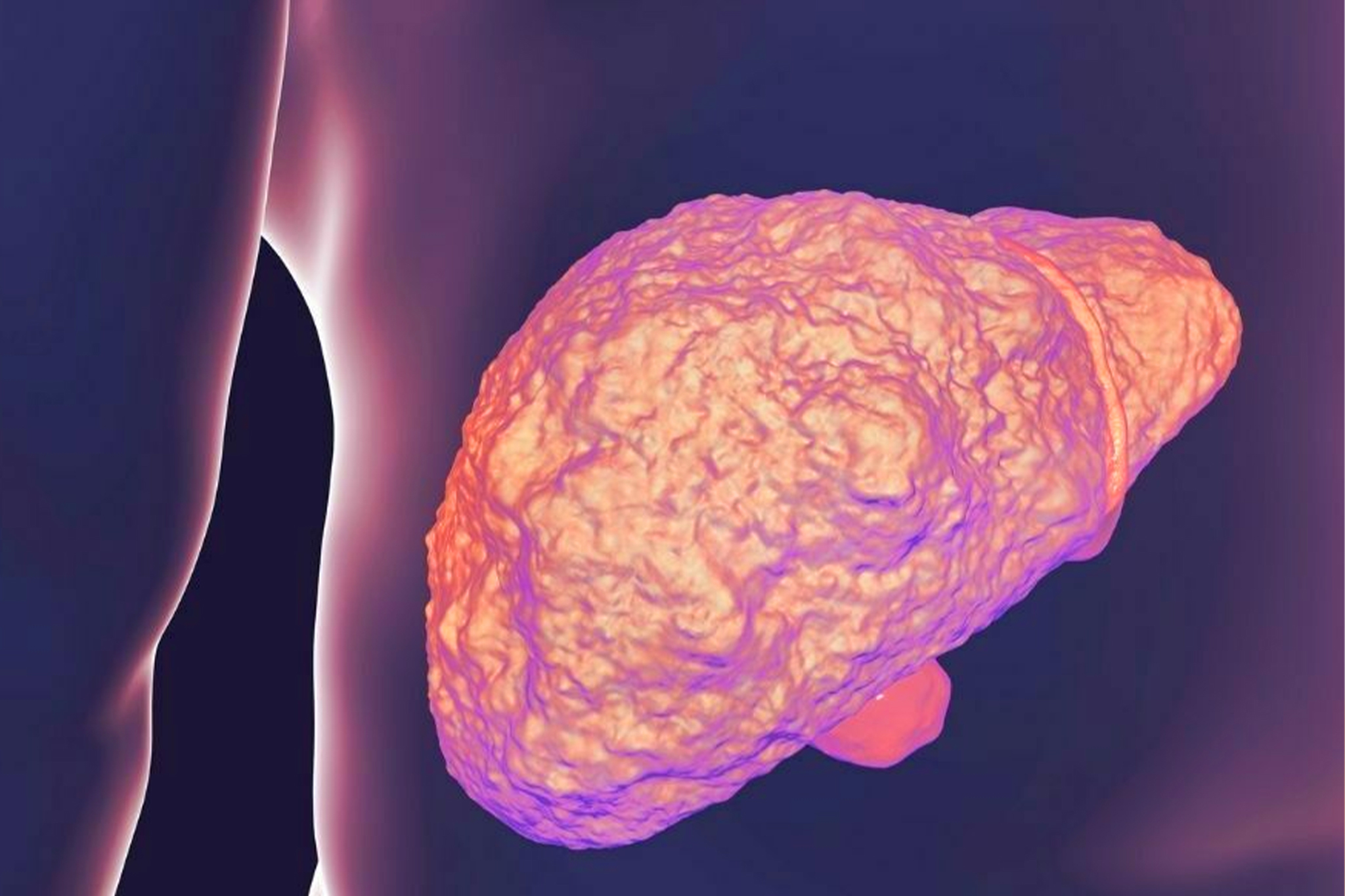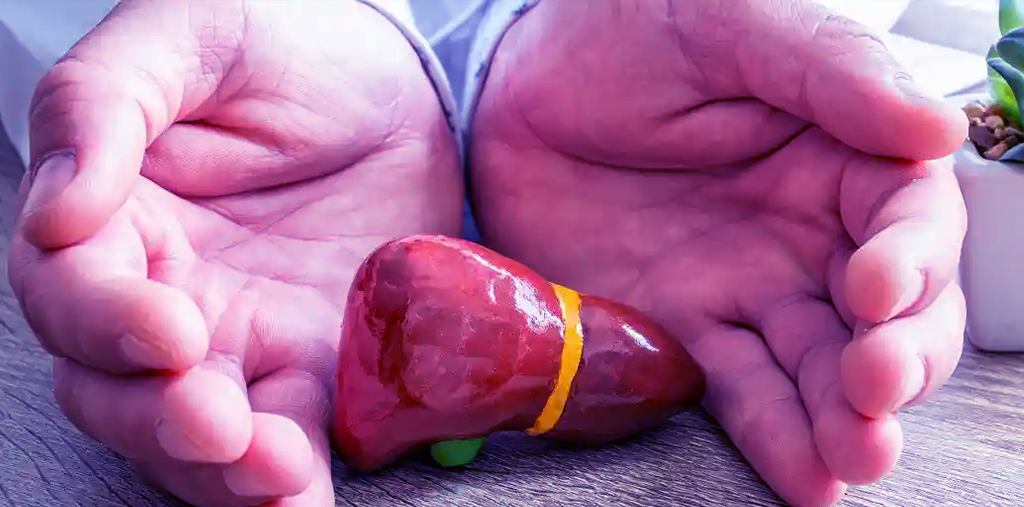Liver cirrhosis
Liver cirrhosis

What is liver Cirrhosis?
Liver Cirrhosis is a medical condition that occurs when the liver is continuously damaged due to various factors such as viral hepatitis or excessive alcohol consumption. This damage leads to scarring (fibrosis) of the liver, causing permanent structural changes in the liver tissue. In the advanced stages of the disease, scar tissue (fibrosis) accumulates inside the liver, leading to impaired liver function. Cirrhosis involves various changes in the tissue, and it can lead to severe complications such as liver cancer and portal hypertension.

Symptoms of liver Cirrhosis
The symptoms of liver cirrhosis vary depending on the stage of the disease. Initially, there may be no clear symptoms, but as the disease progresses, the following symptoms may appear:
- Jaundice:
Yellowing of the skin and whites of the eyes due to the accumulation of bilirubin, as the liver becomes less able to process it.
- General fatigue and weakness:
The patient experiences constant tiredness and energy loss.
- Pain in the upper abdomen:
The patient may feel pain or fullness in the upper abdomen area due to liver enlargement or inflammation.
- Weight and appetite loss:
Significant weight loss and decreased appetite often accompany cirrhosis.
- Fatty diarrhea:
Due to impaired liver function in producing bile salts, the patient may experience fatty diarrhea.
- Swelling in the legs and abdomen:
Fluid retention due to circulatory problems can lead to swelling.
- Hepatic encephalopathy:
In advanced stages, patients may experience a decline in brain function due to the buildup of toxins in the blood, as the liver fails to filter them.
Causes of liver Cirrhosis
Cirrhosis of the liver occurs due to a range of causes and factors that contribute to continuous liver damage:
- Viral hepatitis:
Especially types B and C, which can cause chronic inflammation in the liver, leading to cirrhosis.
- Excessive alcohol consumption:
Chronic alcohol use can lead to liver fibrosis and cirrhosis.
- Non-alcoholic fatty liver disease (NAFLD):
Fat buildup in liver cells due to obesity or diabetes can lead to liver fibrosis.
- Bile salts:
Chronic disorders in the bile ducts can lead to liver fibrosis.
- Chemical poisoning or medications:
Some drugs or toxic substances can cause chronic inflammation that results in cirrhosis.
- Genetics:
Some hereditary diseases, such as Wilson's disease, can cause cirrhosis due to mineral deposits in the liver.
Complications of liver Cirrhosis
If cirrhosis is not treated appropriately, serious complications may arise:
- Liver cancer:
Due to continuous damage and scarring, cirrhosis may progress to liver cancer.
- Portal hypertension:
Due to blockages in the liver's blood vessels, portal hypertension may develop, causing the veins in the esophagus and stomach to enlarge.
- Hepatic encephalopathy:
This occurs due to the accumulation of toxins in the blood from the liver’s inability to filter them, resulting in brain dysfunction.
- Liver failure:
In the advanced stages of cirrhosis, the liver may cease to perform its vital functions, necessitating a liver transplant.
Diagnosis of liver Cirrhosis
Liver Cirrhosis is diagnosed through various medical tests, including:
- Clinical examination:
The doctor will examine physical signs such as jaundice or abdominal swelling.
- Blood tests:
These tests help identify liver dysfunction and any signs of inflammation or scarring.
- Ultrasound:
An ultrasound is used to detect changes in the liver's size and texture.
- Magnetic Resonance Imaging (MRI):
This is used to evaluate the level of liver fibrosis more accurately.
- Liver biopsy:
A tissue sample may be taken from the liver to analyze it under a microscope and assess the degree of fibrosis.
Treatment of liver Cirrhosis
The treatment for cirrhosis aims to reduce symptoms and improve liver function. Treatment options include:
- Treating the underlying cause:
Such as treating viral hepatitis or stopping alcohol consumption.
- Medications to improve liver function:
Certain medications may be prescribed to reduce inflammation or improve bile flow.
- Liver transplant:
In advanced liver failure, a liver transplant may be the only option to save the patient’s life.
- Managing complications:
This includes medications to control portal hypertension or treating hepatic encephalopathy.
Tips for Preventing liver Cirrhosis
- Avoid excessive alcohol consumption:
Maintain moderate alcohol intake or avoid it completely.
- Vaccination against viral hepatitis:
Some types of viral hepatitis can be prevented with vaccines.
- Proper nutrition and maintaining a healthy weight:
Following a balanced diet helps prevent fatty liver and other diseases linked to cirrhosis.
- Regular exercise:
